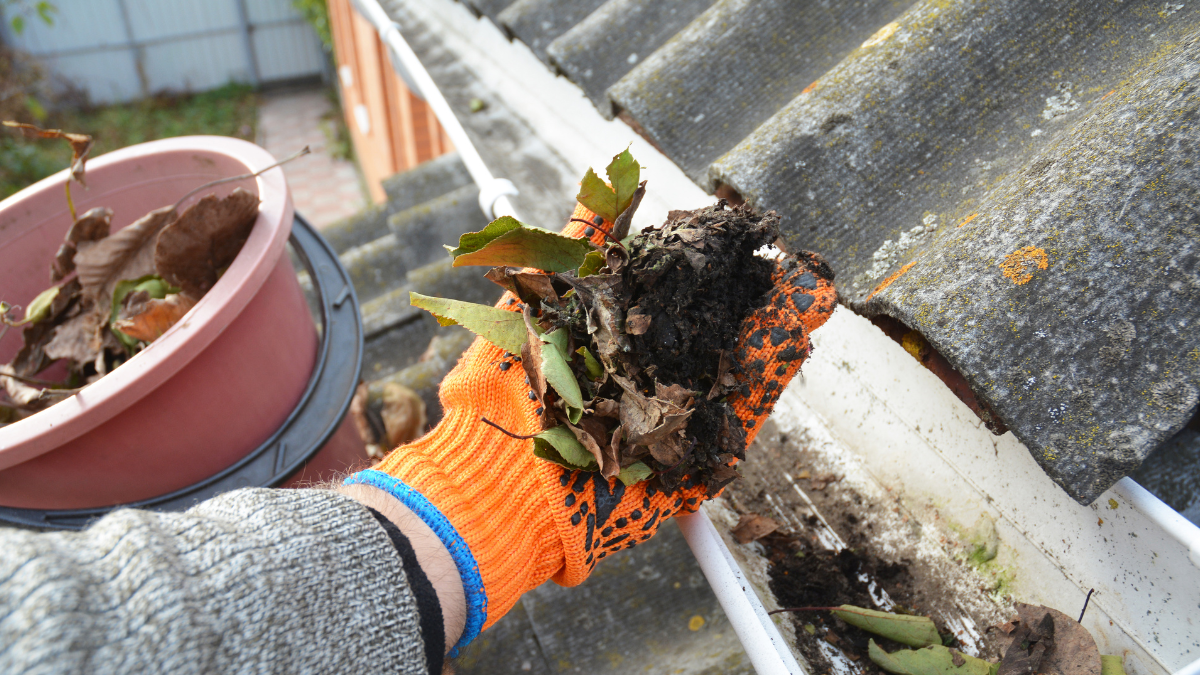
Gutters play a crucial role in safeguarding buildings in Wisconsin, acting as the primary defense against water-related damage. They efficiently redirect rainwater away from the structure, providing essential protection for roofs, walls, foundations, and the surrounding landscape against the detrimental effects of water accumulation.
Despite their vital function in preserving the structural integrity of homes and businesses in Wisconsin, gutters are frequently overlooked and left unattended. This article will delve into prevalent gutter issues, the potential repercussions they pose, and practical solutions for tackling them.
By gaining a comprehensive understanding of and proactively addressing typical gutter problems within the context of Wisconsin's climate, you can ensure that your gutter system remains in optimal working condition. This, in turn, will continue to safeguard your property from the destructive consequences of unmanaged rainwater.
Gutter clogging is a common issue that occurs when leaves, twigs, dirt, and other debris accumulate over time in the gutters, obstructing the normal flow of water.
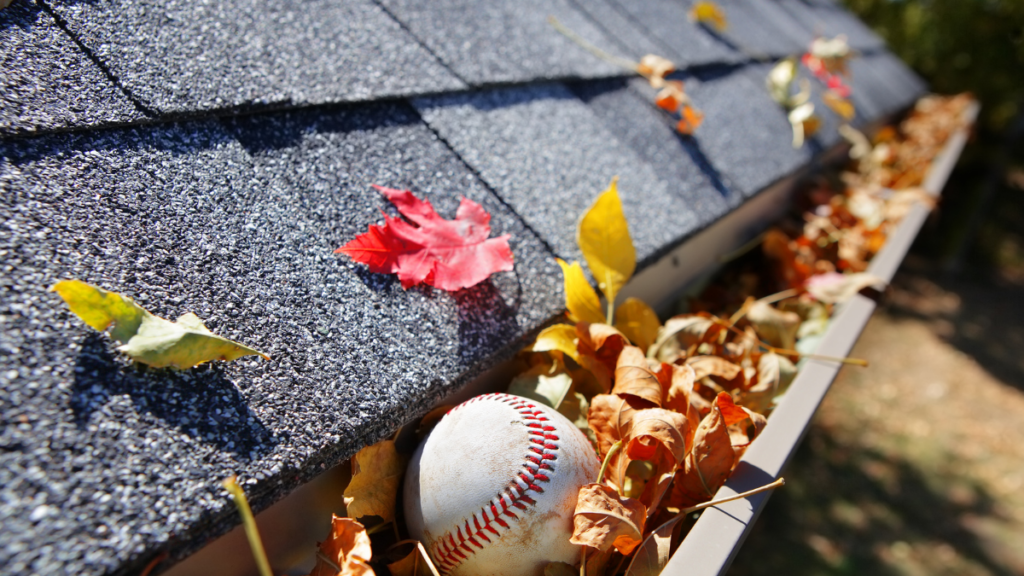
Problem:
Clogged gutters lead to water overflow, which can cause damage to various parts of your home, including the roof, siding, and even the foundation. This can result in costly repairs and structural issues.
Solution:
To address this problem, it is recommended to clean your gutters regularly, typically twice a year, ideally in the spring and fall. You can do this by manually removing debris using a ladder and gloves. Another solution is to consider installing gutter guards, which can prevent debris from entering the gutters in the first place, reducing the frequency of cleaning and minimizing the risk of clogs and associated damage.
Sagging gutters are gutters that hang down or detach from the roofline, often due to improper installation or the accumulation of debris and water weight. This problem hinders their ability to efficiently guide water, potentially causing puddles around the foundation.
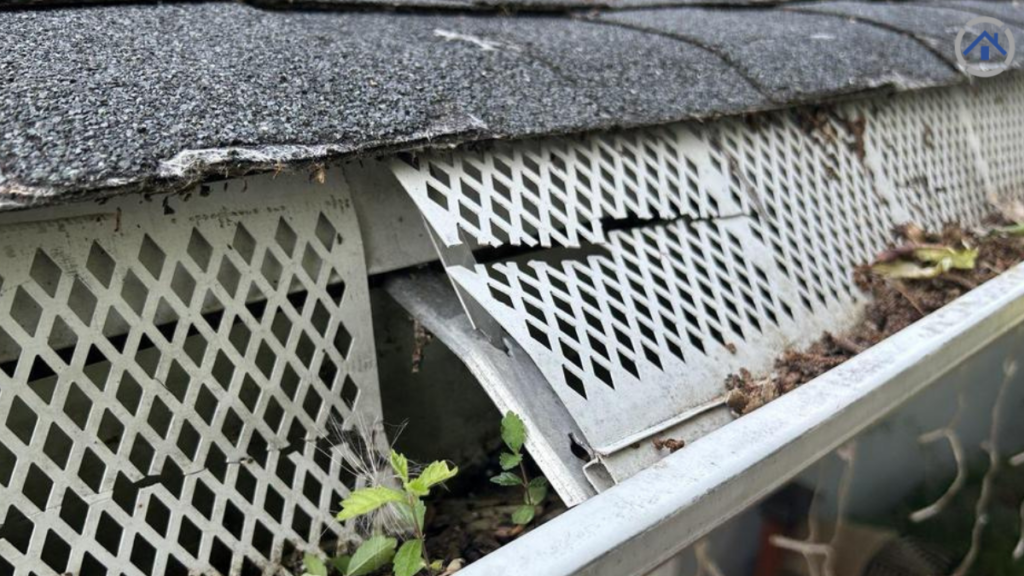
Problem:
Sagging gutters result from issues such as poor installation or the strain of debris and water weight, leading to ineffective water flow and the risk of water pooling near the foundation.
Solution:
To address this issue, reinforce the gutters with additional hangers or brackets. Ensure that the gutters are correctly sloped towards the downspouts to maintain proper water drainage.
Not sealed seams refer to the joints or connections in various materials, such as pipes, fabric, or structures, that lack proper sealing, leaving gaps or openings that can allow substances, like liquids, gases, or particles, to escape or penetrate where they shouldn't.
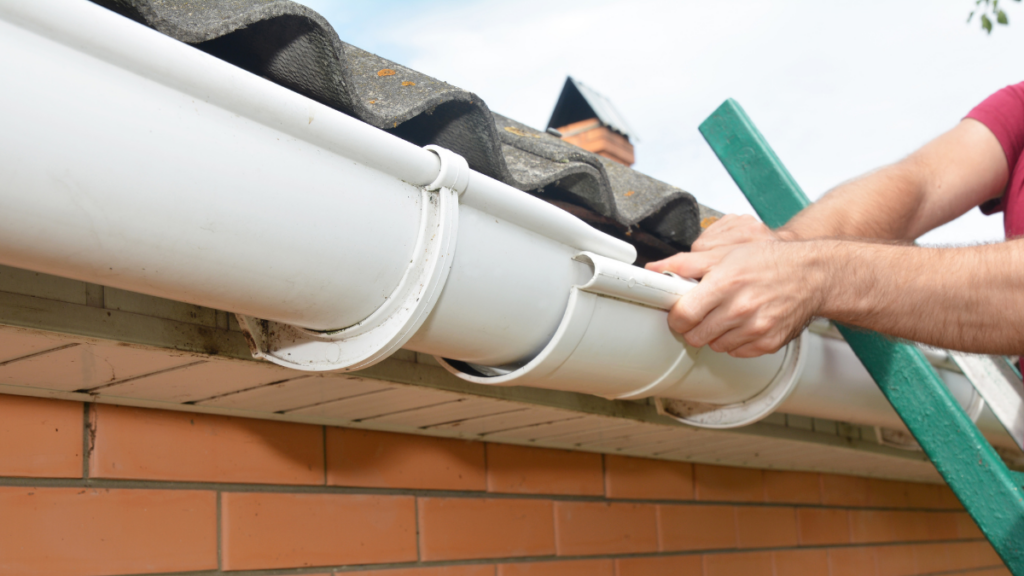
Problem:
The problem with not sealed seams is that they create vulnerable points in a structure or system, which can lead to leaks, contamination, and reduced efficiency. For example, in a plumbing system, not sealed seams can result in water leaks, wasting resources and potentially causing water damage to a building. In manufacturing, improperly sealed seams in airtight containers can compromise product integrity or shelf life.
Solution:
The solution to the problem of not sealed seams lies in employing appropriate sealing techniques and materials. In construction and manufacturing, this involves using sealants, adhesives, or welding methods to ensure that seams are tightly sealed, preventing water, air, or other unwanted elements from infiltrating. In everyday applications, regular maintenance and prompt repair of items with seams can prevent issues from worsening.
For example, in a household context, ensuring that windows, doors, and appliances have sealed seams can improve energy efficiency and prevent drafts. The key to addressing "not sealed seams" problems is attention to detail, quality materials, and timely maintenance to preserve the integrity and functionality of various items and structures.
Ice dams refer to the formation of ice along the eaves of a roof, typically caused by a combination of snow accumulation, freezing temperatures, and inadequate attic insulation and ventilation. These ice formations can block the natural flow of melting snow and ice from the roof, potentially leading to water backing up under shingles and causing leaks and structural damage to the building.

Problem:
Ice dams are a significant issue, particularly in regions with cold winters. They can result in water seeping into the interior of a building, causing damage to ceilings, walls, insulation, and even the structure itself. Additionally, the weight of ice dams can strain the roof's structure and lead to potential collapses. Ice dams also pose safety hazards as they can fall and injure people or damage property. The underlying problem of ice dams often stems from poor insulation and ventilation in the attic, which allows heat to escape from the living spaces and warm the roof, causing snow to melt and refreeze along the eaves.
Solution:
To address the problem of ice dams, it's essential to focus on prevention. Adequate attic insulation and proper ventilation are key to maintaining a consistent and cold roof temperature, preventing snow from melting and refreezing. Installing roof and gutter heating cables can also help prevent ice dam formation. Removing accumulated snow from the roof, especially near the eaves, can be done cautiously to prevent ice dams from growing.
In the event of ice dams, it's crucial to hire professionals or use safe methods to remove them and prevent damage. Regular roof maintenance, insulation upgrades, and winterization practices can collectively mitigate the risks associated with ice dams, safeguarding the integrity of your home and ensuring its comfort and safety during the winter months.
Properly installed gutters should be slightly angled downward toward the downspouts, allowing water to flow smoothly without pooling. When gutters have an incorrect pitch, water can accumulate in specific areas, which may lead to damage.
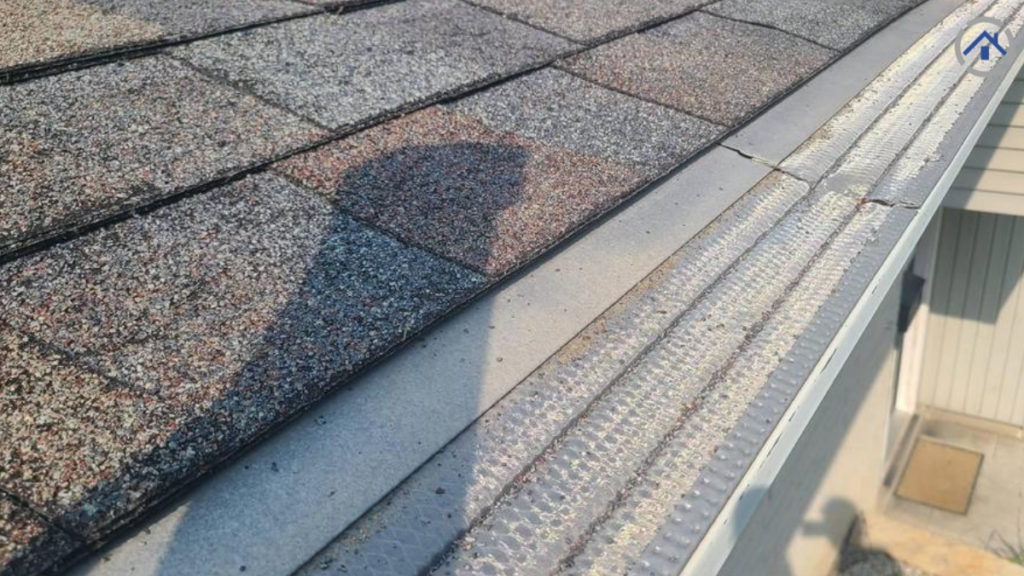
Problem:
The problem here lies in gutters with an inadequate slope or pitch, causing water to gather and potentially result in damage.
Solution:
To address this issue, make adjustments to the hangers or brackets supporting the gutters. By doing so, you can create a more suitable slope, ensuring water flows properly and doesn't accumulate in unwanted areas.
Safeguarding your property's well-being and longevity in Wisconsin is heavily reliant on addressing prevalent gutter problems. Gutters have a pivotal role in shielding your house or building from water-related harm, soil erosion, and potential foundation complications.
Nevertheless, they can transform into a source of trouble when not adequately cared for. Obstructed gutters, drooping gutters, leaky gutters, improper slopes, damaged downspouts, ice dams, and other challenges can all exert substantial repercussions on your Wisconsin property.
Frequent maintenance, correct installation, and prompt repairs are indispensable in thwarting and managing typical gutter predicaments. By taking proactive measures to maintain your gutters in excellent working order, you can shield your property from the destructive outcomes of unchecked rainwater and sidestep pricey renovations. When in doubt about how to handle a specific gutter problem or if it becomes severe, it's advisable to seek guidance from a professional gutter contractor in Wisconsin.